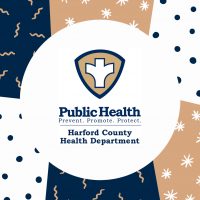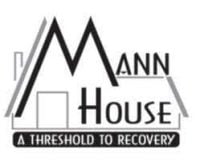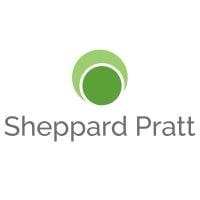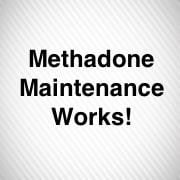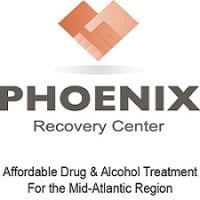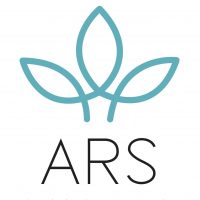Harford County Health Department Division of Behavioral Health
Drug Rehab Center in Bel Air, Maryland
The Harford County Health Department Division of Behavioral Health in Bel Air, Maryland provides comprehensive mental health, substance abuse, and addiction programs to individuals, families, and communities in Harford County.
About This Bel Air, MD Facility
The Harford County Health Department Division of Behavioral Health in Bel Air, Maryland provides comprehensive mental health, substance abuse, and addiction programs to individuals, families, and communities in Harford County. Their dedicated team of professionals, including licensed psychiatrists and psychologists, provides a range of quality services and programs to help those struggling with mental health and addiction. These include medication management, individual and group counseling, therapeutic activities, and intensive outpatient services. They also offer educational services and group activities to help individuals learn to cope with and manage their mental and substance use disorders.
The Division of Behavioral Health offers a range of evidence-based treatment options to best meet the individual needs of clients. These include individual and group counseling, supportive treatment, case management, and relapse prevention. They also offer evidence-based integrated treatment programs, such as Motivational Interviewing and Cognitive Behavioral Therapy. In addition, they provide 24-hour crisis services, including a mobile crisis response team. The Division of Behavioral Health is accredited by the Joint Commission on Accreditation of Healthcare Organizations and is licensed by the Maryland Department of Health and Mental Hygiene.
Genders
Ages
Modality
Additional
Conditions and Issues Treated
Substance abuse is the excessive use of any type of drug. This includes alcohol, medications and illegal drugs. Substance abuse is treated with a combination of physical and mental treatments. Harford County Health Department Division of Behavioral Health patients detox and follow up with therapies that target the underlying cause of the addiction.
Opioid addiction is one of Maryland‘s most prominent forms of addiction. Drugs, including heroin, oxycontin, and fentanyl, are the most common. To relieve pain, or ease other ailments, they are professionally prescribed, but they are often abused because they and the feelings they give are addictive.
Addiction is treated by detoxifying the body, so the medications’ chemicals are no longer impacting the individual. Harford County Health Department Division of Behavioral Health offers therapies to correct behavior and target the root of the problem are supplemented during and throughout treatment.
Some of the most common co-occurring disorders are schizophrenia, depression, and bipolar disorder. Most rehab facilities in Bel Air, MD like Harford County Health Department Division of Behavioral Health provide patients with a dual diagnosis. Dual diagnosis gives rehab the means to treat addiction while restoring mental and emotional health.
Levels of Care Offered
This center offers a variety of custom treatment tailored to individual recovery. Currently available are Aftercare Support, Detox, Drug Rehab, Dual-Diagnosis, Intensive Outpatient, Outpatient, with additional therapies available as listed below.
Detox treatment begins when the patient leaves their surroundings of family and friends, which is usually when they are most vulnerable. Being in a safe environment surrounded by medical professionals provides them with the safety net many of them need to get over their addiction. With kind and caring staff members, patients can feel relaxed, and they will need to start by admitting that they have a problem in order to get better.
If a person goes through detox treatment, they will understand their addiction better, and they won’t want to relapse and lose all the benefits of sobriety. They can see the effects of using drugs and how it makes them feel, which will make them want to quit their addiction.
Drug detox is vital to the recovery process, and it ensures that a patient will be in a safe environment during their withdrawal.
Intensive outpatient programs mostly conduct meetings on weekdays. Group therapy is the main element in most intensive outpatient programs. Most IOPs last for about 90 days and include drug use monitoring and testing. A Maryland IOP, like what’s offerd at Harford County Health Department Division of Behavioral Health, take much more time than a standard outpatient program. Some programs offer other services as well, such as employment assistance and medication management.
Outpatient rehabilitation is a treatment that exists if a patient is not checking into Harford County Health Department Division of Behavioral Health long term. In addition to helping them recover, the patient attends regular therapy sessions and detox and participates in other therapies. However, this is all primarily done from home. As a follow-up to inpatient treatment, outpatient treatment is usually recommended.
After rehabilitation, it helps people return to their everyday lives. It may also be an alternative to inpatient care in some situations. If they cannot leave their jobs, children, or don’t have the money for inpatient care, people can choose this method. Inpatient therapy, however, is the best method and most suggested level of treatment offered by Harford County Health Department Division of Behavioral Health in recovering from addiction.
Harford County Health Department Division of Behavioral Health‘s Therapies & Programs
Substance abuse does a number on an individual’s relationship with other people, particularly in marriage. Spousal relationships bear the brunt of alcohol and drug dependence. Therefore, it becomes critical to submit the relationship to couples therapy to prevent straining it further. Most programs only zero in on the individual with substance addiction without factoring in the importance of the other half’s emotional support.
However, some facilities, like Harford County Health Department Division of Behavioral Health in Bel Air, Maryland, offer couples therapy options to manage intimate partnerships amid the recovery process. Other couples-focused treatment plans can provide the patient and their partner tools to get things back to normal, support each other, and the patient’s sobriety.Group Therapy is a type of counseling that occurs between a bunch of strangers. These groups are suitable for patients who are not confined in a treatment facility, but group sessions are also common in inpatient rehab programs. Group therapy is led by a trained individual at Harford County Health Department Division of Behavioral Health in Bel Air, MD and consists of members from different stages of recovery.
The goal of group therapy sessions is to foster hope and a sense of belonging, share information, and learn coping mechanisms. It also helps to have people who can relate to what you’re going through. Good behaviors can also be contagious, and participants can learn from one another.
Dialectical Behavior Therapy (DBT) is an improved version of Cognitive Behavioral Therapy (CBT) DBT is a treatment of choice for people being treated at Harford County Health Department Division of Behavioral Health whom are suffering from self-harming behaviors. Conditions such as obsessive-compulsive disorder and borderline personality disorder also benefit from DBT.
Cognitive Behavioral Therapy (CBT) is an approach and method in psychotherapy. Harford County Health Department Division of Behavioral Health asks people to investigate how their thoughts, including habitual, negative, and inaccurate ways of thinking affect behaviors. CBT is based on the idea that rigid, inflexible ways of thinking cause people to have a limited ability to cope with stress
Rational Emotional Behavior Therapy (REBT) is a method of specific counseling that replaces negative and self-limiting thoughts with positive and productive behaviors. Self-defeating thoughts and habits can limit your possible successes. Some examples of this are procrastination, unhealthy eating and angry outbursts. You may not be aware that some unhealthy behaviors and thoughts are sabotaging your potential accomplishments.
Some people refer to contingency management, or CM, as motivational incentives. This type of therapy is a reconditioning of the mind and responses of the body. The point of CM is to help the body understand the proper responses to behaviors should be, as well as the effects that come with both problematic and desired behaviors. The more positive choices a person makes, the more incentives they will receive, all managed with sobriety goals by Harford County Health Department Division of Behavioral Health in Bel Air, MD.
Payment Options Accepted
For specific insurance or payment methods please contact us.
Is your insurance accepted?
Ask an expert, call (888) 674-0062
Additional Details
Specifics, location, and helpful extra information.
Bel Air, Maryland 21014 Phone Number(410) 877-2360 Meta DetailsUpdated November 25, 2023
Staff Verified
Patient Reviews
There are no reviews yet. Be the first one to write one.
Bel Air, Maryland Addiction Information
For the past decade, Maryland's rate of drug use and abuse has significantly increased. The overdose rate is currently higher than the national average. This epidemic is due to the many industries where manual labor is required. As soon as prescription opioids were more readily accessible a large part of manual workers started using–and eventually abusing–the painkillers.
The drug addiction problem in Bel Air, MD, is relatively bad. There were over 9,000 admissions to drug and alcohol treatment centers in 2009. Of these admissions, almost 60% were for alcohol abuse, and more than 30% were for drug abuse. The most common drugs of abuse among those admitted to treatment were heroin, marijuana, and cocaine. Relapses are common among people attempting to return to sobriety in Bel Air.
Treatment in Nearby Cities
- District Heights, MD (54.9 mi.)
- Barstow, MD (71.2 mi.)
- Thurmont, MD (56.9 mi.)
- Pasadena, MD (31.7 mi.)
- Princess Anne, MD (98.6 mi.)
Centers near Harford County Health Department Division of Behavioral Health
The facility name, logo and brand are the property and registered trademarks of Harford County Health Department Division of Behavioral Health, and are being used for identification and informational purposes only. Use of these names, logos and brands shall not imply endorsement. RehabNow.org is not affiliated with or sponsored by Harford County Health Department Division of Behavioral Health.
